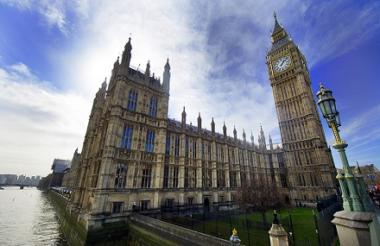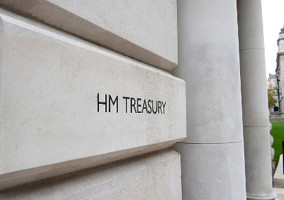Charities have urged the government to rebuild its relationship with the voluntary sector, after MPs criticised the way emergency funding decisions were made during the coronavirus crisis.
ACEVO said that it was “crucial” that ministers listen to the recommendations in the report from parliament's Public Accounts Committee (PAC), while NPC said that it highlighted the need for “better dialogue” between charities and government officials.
The report, published today, said that there was “notable opaqueness” over how some of the £750m emergency funding for charities was allocated.
The report also questioned the role of consultants and special advisers in funding decisions.
MPs recommended that the Department of Digital, Culture, Media and Sport (DCMS) report back within three months on how it was monitoring the financial health of the charity sector, and warned that officials must keep better records of how funding decisions are made.
Lloyds Bank Foundation: Government must help sector ‘recover and rebuild’
Duncan Shrubsole, director of policy, communications and research at the Lloyds Bank Foundation for England and Wales, said: “Charities have been right on the frontline of helping people and communities through the challenges of Covid and lockdowns, and it was right that the government moved quickly to announce a package of support for charities, particularly small and local ones, back in April last year.
“As today’s PAC report highlights, however, there was a lack of transparency as to how the money was allocated and awarded, and the overall size of the programme was much less than had been provided to help other critical sectors.
“We welcome the committee’s recommendations that the government should learn the lessons and be clear and transparent on its approach and criteria, and should draw on the experience and expertise of the National Lottery Community Fund (NLCF) and other grantmakers, rather than private consultancies.
“In particular we agree with the committee that the government should consider the case and circumstances that would trigger further financial support for charities, recognising their continuing vital role in helping people and communities stay safe, recover and rebuild.”
ACEVO: Worries about ‘substantive lack of transparency’
Kristiana Wrixon, head of policy at ACEVO, said her organisation supported the PAC's report and recommendations.
She said: “Since March 2020, ACEVO has worked closely with the minister and civil servants at DCMS to raise issues shared with us by our members working on the frontline during the pandemic.
“These conversations are welcome, but there has been a substantive lack of transparency in government decision-making related to the support provided to charities.
“ACEVO and other infrastructure bodies have also repeatedly raised concerns about the level of involvement from contractors and special advisers in decisions about awarding grants.
“The Charity Commission’s written evidence suggests that many charities have experienced significant financial hardship and loss of income over the last year. Less financial resource means fewer life-saving and life-enhancing projects can be run. Projects that people across the country need right now.
“It is crucial that DCMS demonstrates how it will apply the recommendations made in this report so that charities can be there to support the government to maximise the impact of its flagship levelling up agenda.”
NPC: ‘We urgently need better dialogue’
Tom Collinge, policy manager at the think tank NPC, said: “This report confirms what everyone already knew. Charities are vital to Britain’s health and happiness but need to make themselves better understood by government.
“When the department allocated more funding to culture than it did to frontline charities, the report suggests it did so because more charities would stay open through the crisis. But of course charities cannot close in a crisis, it is exactly the time they are needed to step up.
“While the furlough scheme, another reason given for the funding decision, was open to charities, they could not furlough the staff out there tackling the crisis and its knock-on effects.
“So while charities were reporting incomes dropping, demand was rising and government support was less than for other sectors.
“We urgently need a better dialogue between the charities and government, so these, and many of the other issues identified in the report, can be avoided in future.”
DSC: We must tackle problems together
Jay Kennedy, director of policy and research at the Directory of Social Change (DSC), said: "None of this comes as any surprise to those of us who pushed to get emergency funding out quickly to save vital charitable services from collapse, which at various points became bogged down in bureaucratic red tape and double-standards for charities that private business wasn’t subjected to.
“DSC had to resort to multiple Freedom of Information requests to get data into the public domain about the rollout of the Coronavirus Community Support Fund, for example.
“The NLCF’s distribution of that fund – which provided small grants primarily for small charities – was hampered by conditions imposed on it by DCMS from the outset, as well as the totally unnecessary inclusion of a private sector contractor in the process.
“However, the PAC’s most important contribution for the future may be its conclusion that ‘DCMS cannot demonstrate that it understands the financial health and resilience of the sector’, and its recommendation that ‘DCMS should, within three months, set out the triggers that would prompt it to consider further government financial support to the charity sector’.
“This remains an important priority that the department and charity leadership organisations need to tackle together.”
Young Lives vs Cancer: Charities faced ‘radio silence’ from government
Rachel Kirby-Rider, chief executive of Young Lives vs Cancer, which did not receive any funding through the emergency scheme, said that her charity was never told how to apply for emergency funding.
Kirby-Rider said: “Young Lives vs Cancer became aware during the pandemic that £360m of funding was allocated by government departments with bids made to the DCMS. This information, or any application process by which to access funding, was not made public, and we were therefore unable to apply.
“On May 22, the Department of Health and Social Care announced which charities had been allocated their portion of funding.
“One year on and we are still none the wiser as to how bids for funding were made and would welcome further investigation into how charities were invited to apply. There was no telephone number to call, no website to apply to and no public information on how we could have accessed this particular pot for charities. We tried our best to get information – contacting civil servants, having MPs ask questions in parliament and still received no straight answer from the government. Just radio silence. The findings of this report go some way to echo that our pleas for support were falling on deaf ears.
“The Cultural Relief Fund received nearly three times as much funding as charities. Whilst we welcome such support, we are disappointed this same level of support was not mirrored in the charity sector where there was an increase in demand of services against a fall in income.
“We couldn’t shutdown our services – they were needed more than ever. Online fundraising was not a match to the opportunities lost from big events such as the London Marathon.
“We share the sentiment of the report that the government should set out clear actions they will take to monitor and understand the financial health and resilience of the charity sector moving forward. We know we are not alone in our concerns and we’re keen to work together with other vital charities to show just how much the charity sector is needed in society.
“As the leading cancer charity for children and young people in the UK, our fight is far from over during such uncertain times to reach and support everyone who needs Young Lives vs Cancer during the Covid-19 pandemic and beyond.”
Related news











